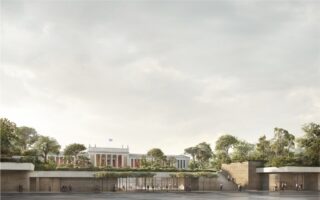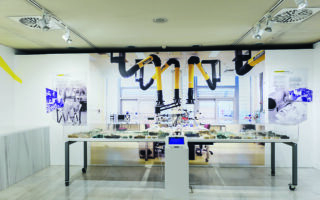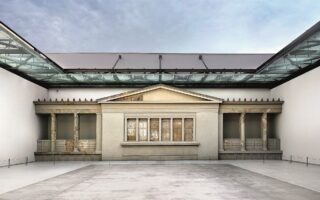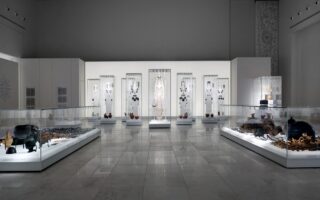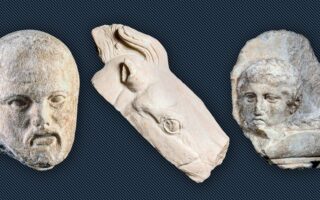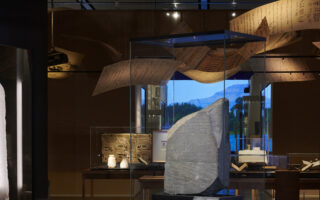Knossos Research Center in for overhaul
British School at Athens announces multi-million-euro upgrade of its facility at site
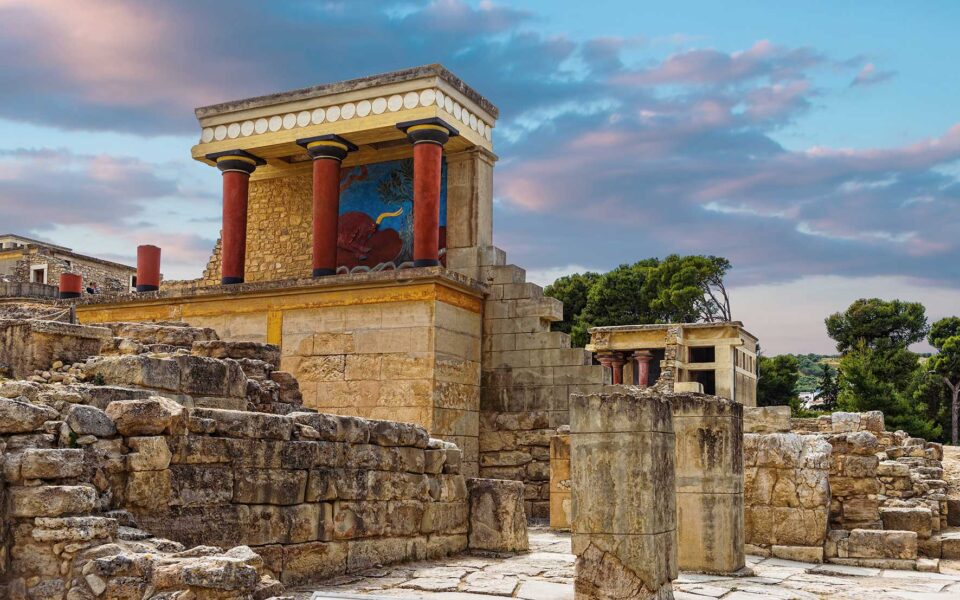
The British School at Athens (BSA) has announced the successful conclusion of a major fundraising campaign for its Knossos 2025 Project, an initiative that aims to support archaeological research at Knossos well into the 21st century.
The project has involved raising more than £2.6 million over the past four years, which will fund a complete redevelopment of the Stratigraphical Museum at Knossos and equip the BSA’s Knossos Research Center to the highest international standards. The BSA has received tremendous support from the Greek Ministry of Culture and Sports, which will be its partner in the forthcoming construction project.
Professor Rebecca Sweetman, director of the BSA, said: “This is a very exciting time for Greek archaeology. I want to thank all of our supporters, both large and small, for their generosity, and also our project patron, the author Victoria Hislop. Our four-year fundraising campaign had made impressive progress, despite the interruption caused by the Covid-19 pandemic, but was still far from reaching its necessary goal. We are proud to reveal that the major donor whose transformational pledge enabled us to move into the final stage of the appeal during summer 2022 was the Packard Humanities Institute, a California-based foundation that supports many projects in archaeology, including the Athenian Agora.
“The BSA’s long history at Knossos has played an important role in the academic development of generations of archaeologists and we want to protect the site’s unique legacy for everyone. We now embark on the next chapter of its history as the project moves from its fundraising phase to its delivery stage.”
‘The new museum will also be a center of academic engagement with local communities, making scientific knowledge accessible to the public’
Dr Kostis Christakis, Knossos curator of the BSA, added: “These donations will enable us to double the size of the existing Stratigraphical Museum with a new mezzanine floor offering over 700 square meters of study and storage space. This will preserve more than 100 years of artifacts excavated at Knossos and other sites in Crete for study by students and international academics. New laboratory space for ceramic analysis and bioarchaeological research will be created and our collections will be digitized to become an online resource for researchers. The new museum will also be a center of academic engagement with local communities, making scientific knowledge accessible to the public.”
Acclaimed author Professor Roderick Beaton, chair of the British School at Athens, commented: “This project will safeguard archaeological research conducted at Knossos during the 21st century and beyond. The renewed Knossos Research Center will provide world-class research facilities for new generations of scholars undertaking innovative and exciting research. It will help all of us to understand the past.”
The site
Knossos is one of the most important archaeological sites in the world, the oldest settlement in Europe, and the center of Minoan civilization. It is the mythological home of King Minos, the Minotaur, the Labyrinth and the legend of Theseus and Ariadne. Knossos is so widely recognized that the palace is the second most visited archaeological site in Greece, attracting over a million visitors each year.
The first site excavations at Knossos were conducted by the Cretan antiquarian Minos Kalokairinos in 1878-9 and were continued in 1900 by the famous British archaeologist Sir Arthur Evans. One of Sir Arthur’s priorities was the safe storage of the finds from his excavations. Initially they were stored on-site and in some spaces in the nearby Villa Ariadne. He then gifted his estate in Knossos to the BSA in 1926, when the post of Knossos curator was established. The BSA has been associated with the site ever since.
The current Stratigraphical Museum, known affectionately as “The Strat,” was opened in 1966. After over 50 years of intensive use, it urgently needs complete refurbishment to ensure the best possible storage and conservation conditions for the precious archaeological materials housed within it.
More on the Knossos 2025 Project will be announced at the annual Work of the School open lecture on Thursday, February 16, hosted at the Archaeological Society of Athens (22 Panepistimiou, Athens).
